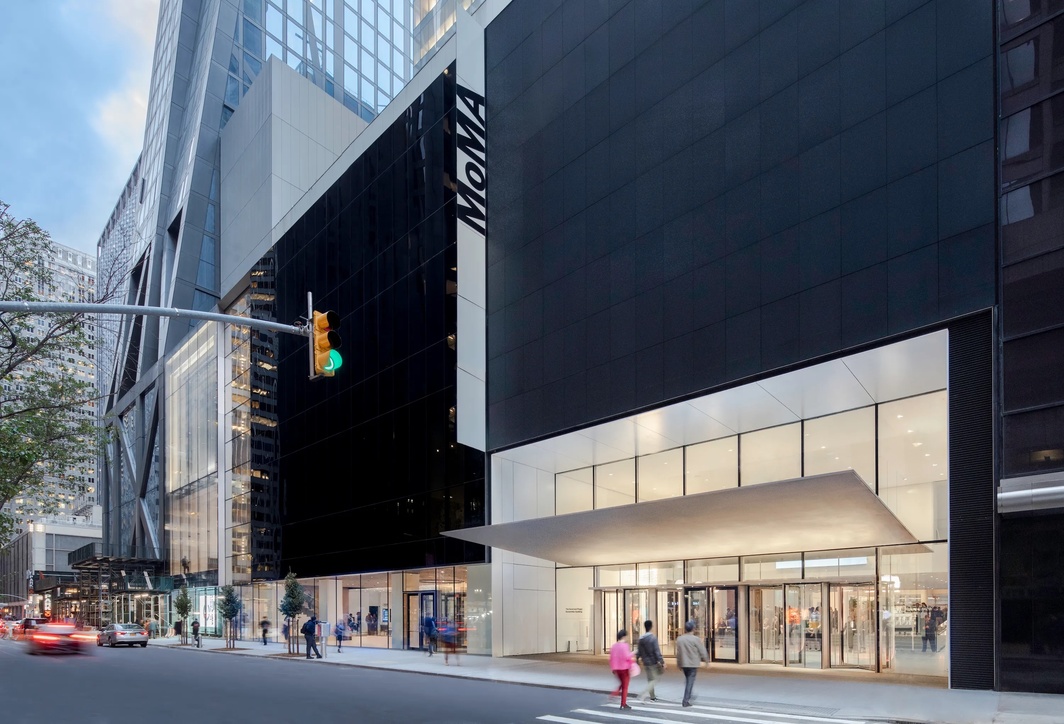
Will Manhattan’s Elite Museums Give Back Their Dirty Russian Oligarch Money?
American philanthropies, museums and universities have accepted millions of dollars from tycoons aligned with Russian President Vladimir Putin, including several who are the targets of Western sanctions, according to an analysis by anti-corruption researchers.
Among the many beneficiaries are such storied institutions as New York’s Museum of Modern Art, the Massachusetts Institute of Technology, the Mayo Clinic and the Guggenheim Museum, the research shows — a reflection of how deeply money from Russian oligarchs has penetrated American society.
The findings are likely to amplify demands that U.S. cultural organizations disavow donors believed to have profited from the Putin regime. It was produced by the Anti-Corruption Data Collective, a group of academics, data analysts and policy advocates working to expose transnational corruption.
Since Russia invaded Ukraine on Feb. 24, civic groups around the world have pressured Western institutions to cut ties with Russians aligned with Putin. In New York, Carnegie Hall has halted concerts by conductor Valery Gergiev and pianist Denis Matsuev, while the Metropolitan Opera announced it will not engage pro-Putin artists.
Late Friday, a petition signed by dozens of Ukrainian groups, anti-corruption organizations and prominent activists called on “all Western institutions to halt all forms of cooperation with Kremlin-connected entities and sponsors.”
“The West is finally waking up to the fascistic and inhumane nature of Vladimir Putin’s regime,” the petition said. “The time has come for academic and cultural institutions to do the same.”
To produce the analysis, the collective scoured public sources for records of charitable contributions given personally by the oligarchs or by the companies and foundations they control. Because many large cultural institutions are not required to reveal their funding sources, the analysis probably reflects only a portion of the oligarchs’ donations. The institutions receiving the money often did not provide precise figures for the donations, only lower bounds, and the amounts could be substantially higher.
Among the oligarchs named in the analysis:
Viktor Vekselberg, an energy tycoon aligned with the Kremlin, who has donated more than $100,000 in his own name or through his company to an array of groups, including the Clinton Foundation, the Museum of Modern Art and MIT, where he established a scholarship in his name. The Treasury Department designated Vekselberg for sanctions in 2018 “for operating in the energy sector of the Russian Federation economy.”
Mikhail Fridman and Pyotr Aven, billionaires recently sanctioned by the European Union, who contributed more than $1 million through their Genesis Philanthropy Group to organizations including the Jewish Federation of Greater Los Angeles and the National Yiddish Theatre Folksbiene. The E.U. described Aven as “one of Vladimir Putin’s closest oligarchs” and said Fridman had been “referred to as a top Russian financier and enabler of Putin’s inner circle.”
Vladimir Potanin, one of Russia’s richest men, who has given millions to the Kennedy Center and been a major benefactor of the Guggenheim Museum. Potanin has not been sanctioned but was among the Kremlin insiders who profited handsomely in the 1990s when the Russian government essentially sold off state-owned companies to politically connected business figures. He reportedly plays hockey with Putin and, according to state-owned news agency Tass, he and other oligarchs met with the Russian president at the Kremlin shortly after the invasion of Ukraine.
Leonid Mikhelson, whose gas company was sanctioned by U.S. officials in 2014 in response to Russia’s “continued attempts to destabilize eastern Ukraine and its ongoing occupation of Crimea.” He also attended the recent meeting with Putin, according to Tass. Mikhelson has donated at least $100,000 to the Art Institute of Chicago through his foundation, the analysis shows, with some going toward a 2017 exhibit. The New Museum in New York accepted a “small donation” from Mikhelson as recently as 2017. The museums declined to offer precise figures.
Dmitry Rybolovlev, a Russian billionaire named under a 2017 law requiring the Treasury Department to list oligarchs and political figures close to the Russian government. Rybolovev has donated at least $1 million to the Mayo Clinic — most in 2011 or before — and to Amfar, the Foundation for AIDS Research, the analysis shows.
Since Russia annexed Crimea in 2014, the United States and the European Union have led a campaign to pressure Putin through economic sanctions, including restrictions on Russian billionaires believed to have benefited from a corrupt regime. The Treasury Department has repeatedly “designated” business figures close to Putin, limiting their access to the U.S. economy. Since the Ukraine invasion, the Biden administration has threatened to use those measures more aggressively.
David Szakonyi, a political science professor at George Washington University and co-founder of the data collective, said some oligarchs have used extensive philanthropic contributions to “help launder their reputations and integrate themselves socially and financially in the West.”
These “contributions to charity and cultural institutions are done in hopes that Western society will look past questions about where their money comes from,” said Szakonyi, who developed the research into charitable donations with Casey Michel, author of “American Kleptocracy.” Szakonyi said the analysis highlights the need for stricter requirements on charities to disclose major donors.
None of the Russian billionaires listed responded to requests for comment. Some have called for peace in the wake of the Ukraine invasion, including Fridman, who was born in western Ukraine.
Last week, Fridman and Aven released a statement saying they would contest the recent E.U. sanctions against them, saying they were imposed on a “spurious and unfounded basis.” They also announced that their philanthropy would deliver $10 million in assistance to Ukrainian Jews.
